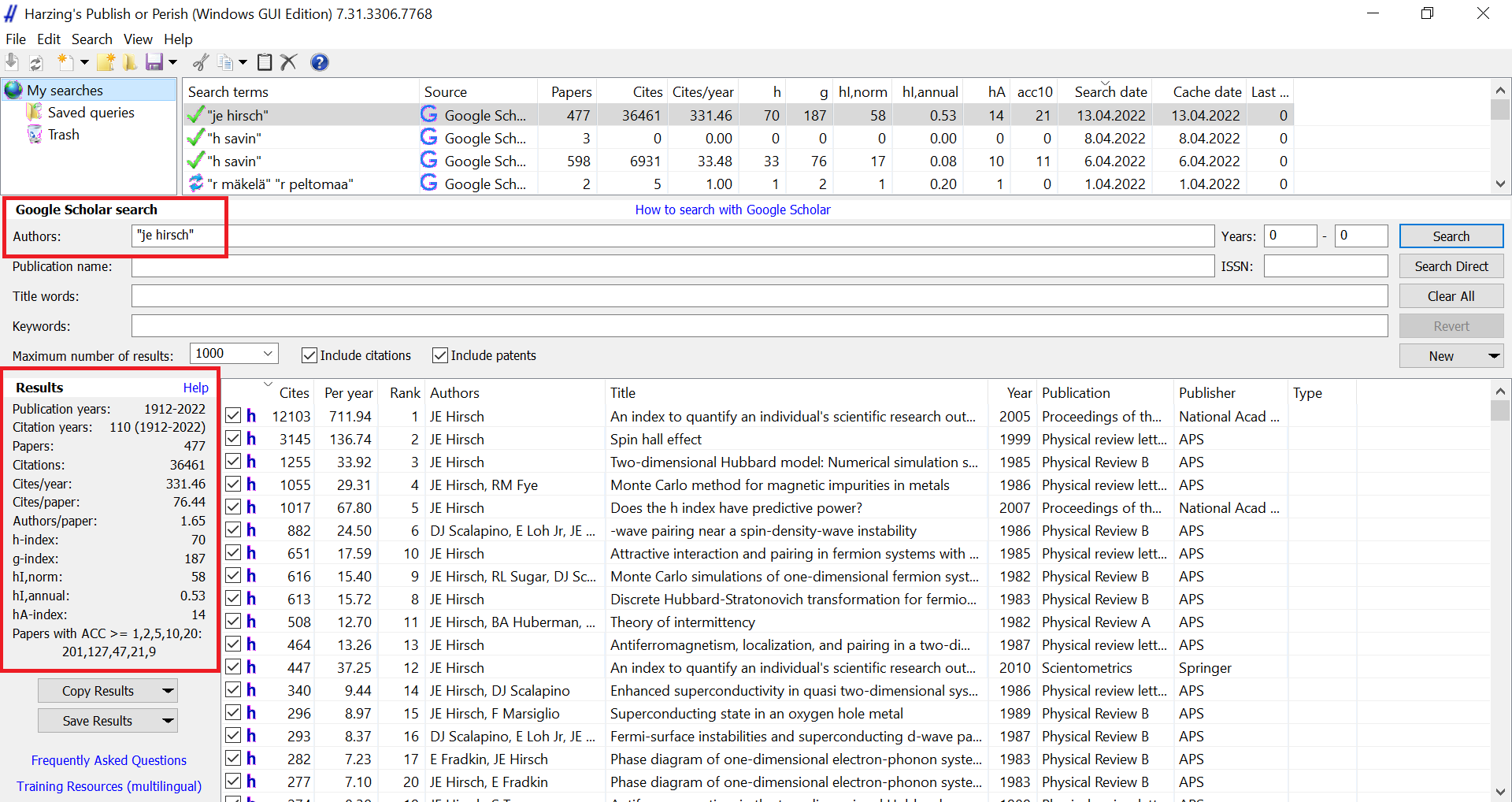Publish or Perish (PoP) is freeware that allows users to search for and analyse citation data from several data sources. The first version of the program released in 2006 was mainly intended for analysing Google Scholar materials. Today, in addition to Google Scholar materials, the software can be used to analyse citation data from Crossref, PubMed, Scopus and Web of Science (WoS). Open databases are also added to the service as new operators emerge in the field. However, it should be taken into account that some of the materials require a licence acquired by your organisation. The software was developed and is maintained by Professor Anne-Wil Harzing. Using the software requires installing on your device: software versions are available for Windows, Linux and macOS. Software can be downloaded at Harzing.com.
Compared to other analysis tools presented in this guide, the search and analysis functions of PoP are very simplified. In practice, the operation and maintenance of the software are managed by one person, Professor Anne-Wil Harzing. Using the software is free, but organisations or individual users can make donations to support the development of the software, if they wish.
In PoP, a search is started by selecting the desired source material: Google Scholar, Crossref, PubMed, Scopus or WoS. Some of these materials will require a licence acquired by the organisation and a ‘search key’. The search can also be targeted at the personal profiles in Google Scholar. Users can carry out searches based on a person’s name, publication’s title, words used in the title, keywords or an ISSN identifier. The search can also be limited to certain years. When using the filter for certain years, it should be taken into account that many records indexed in Google Scholar have deficiencies regarding publication dates, and using the filter may prevent the software from finding every publication of a certain person, for example. The search results received can be sorted by the number of citations, author, the title of publication, the year of publication or the publisher. The program automatically shows the publication and citation statistics for the selected results.
You can view the search results in the software’s own UI or you can save them for further analysis in several formats (such as CSV, Excel, BibTex). By clicking on an individual publication in the search results, the user can view the publication in question in the source data they have chosen.

Figure 1. A view of the search results of Publish or Perish software when searching Google Scholar materials by a person’s name. In addition to a name, a name of a publication, words used in its title, keywords or an ISSN identifier can be used as search terms. The search can also be limited to certain years. The search results received can be sorted by the number of citations, author, the title of publication, the year of publication or the publisher. The software automatically shows the publication and citation statistics for the selected results. The result can be saved in several formats. Image source: Publish or Perish (Windows GUI Edition) version 7.31. 13 April 2022
PoP allows the user to analyse the impact of individual researchers' publications and it can be used to evaluate and compare the scientific journals. With PoP, it is possible to calculate the following indicators:
More detailed descriptions of indicators applied by PoP are available on the service’s own website. You can also read more on using indicators for analysing research outputs in the chapter Indicators of this guide.
Harzing.com (no date) Publish or Perish. Available: https://harzing.com/resources/publish-or-perish. [Accessed 21.2.2022]
Harzing's. Publish or Perish (Windows GUI Edition) versio 7.31 [kuvankaappaus]. [Accessed 13.4.2022]